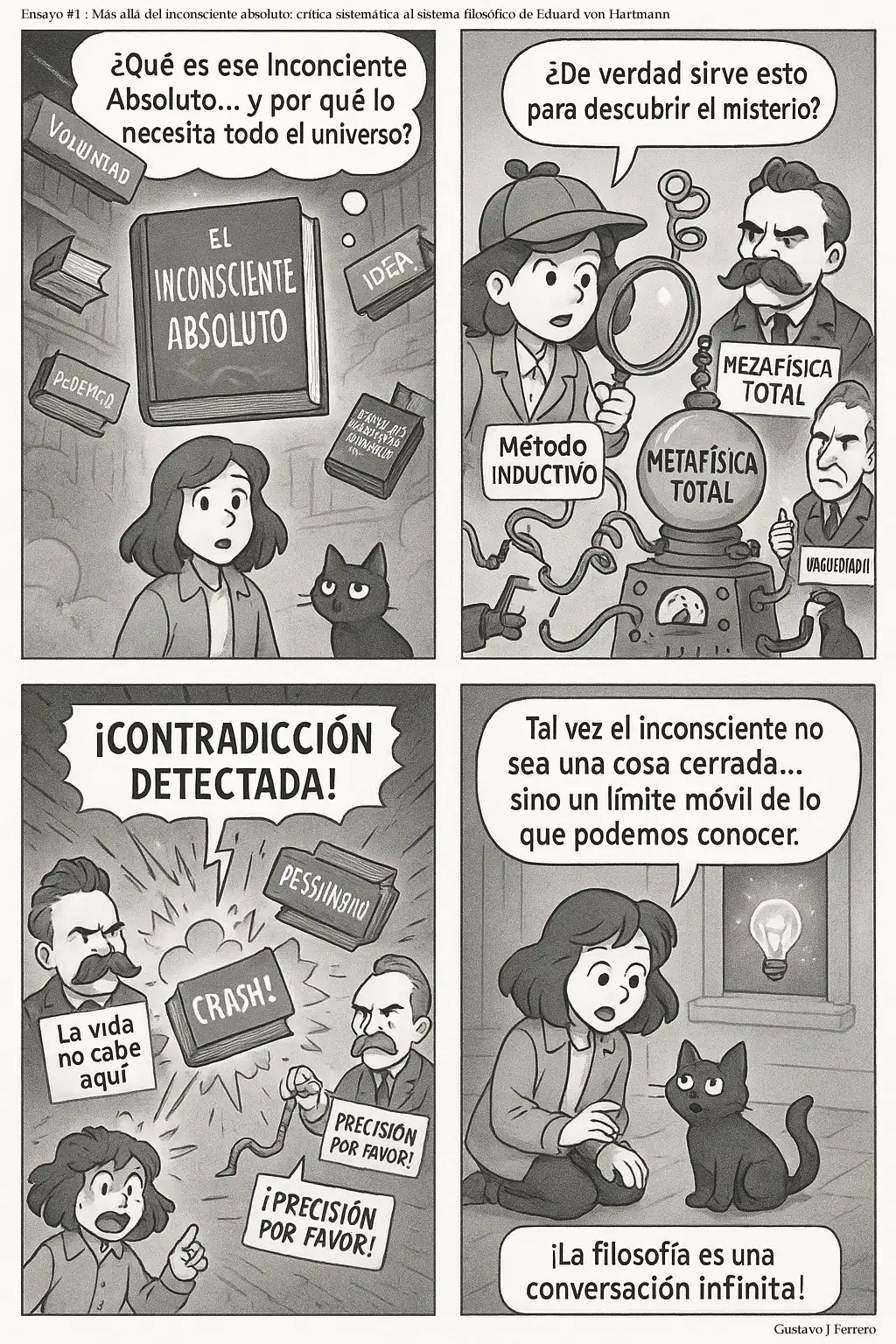Nota introductoria al lector
Este ensayo nace del diálogo crítico con una de las obras más influyentes y complejas del pensamiento alemán del siglo XIX: La filosofía de lo inconsciente, de Eduard von Hartmann. A través de una lectura minuciosa y reflexiva, el autor se propone no solo comprender el sistema hartmanniano, sino someterlo a una revisión rigurosa desde sus fundamentos ontológicos, epistemológicos y éticos.
La intención no es desacreditar la obra ni minimizar su valor histórico, sino abrir un espacio de pensamiento donde la crítica funcione como herramienta de comprensión más profunda. El lector encontrará aquí una exposición clara, estructurada y argumentada, que dialoga con Hartmann desde el respeto filosófico y la exigencia conceptual.
Este trabajo está dirigido a estudiantes, docentes, investigadores y lectores apasionados por la filosofía, especialmente aquellos interesados en la historia del pensamiento sobre el inconsciente, la voluntad y la conciencia. Que esta lectura sea una invitación a pensar más allá de los sistemas y a descubrir que toda crítica auténtica es también una forma de homenaje intelectual.
Abstract
Title: Beyond the Absolute Unconscious: A Systematic Critique of Eduard von Hartmann’s Philosophical System
This essay presents a thorough critique of The Philosophy of the Unconscious by Eduard von Hartmann, examining its ontological, epistemological, and ethical foundations. Through a respectful yet rigorous reading of Hartmann’s system, it questions the legitimacy of positing an “absolute unconscious” as a metaphysical entity capable of explaining the world.
The critique unfolds across five chapters, addressing: the internal coherence of the system; its confrontation with objections raised by Nietzsche and Brentano; the methodological inconsistency of applying inductivism to metaphysical absolutes; the paradox between its ontological pessimism and redemptive view of history; and finally, an alternative proposal in which the unconscious is conceived as an epistemic horizon—a shifting limit of introspective knowledge—and the will as a non-discursive intentional phenomenon.
Far from closing off Hartmann’s thought, the essay seeks to expand it through a more open philosophy, one that is aware of its own boundaries and engaged with contemporary currents such as phenomenology, hermeneutics, and critical epistemology. In this way, it reclaims the philosophical gesture as an infinite conversation, where thinking what we do not yet understand becomes the most radical act of openness.

